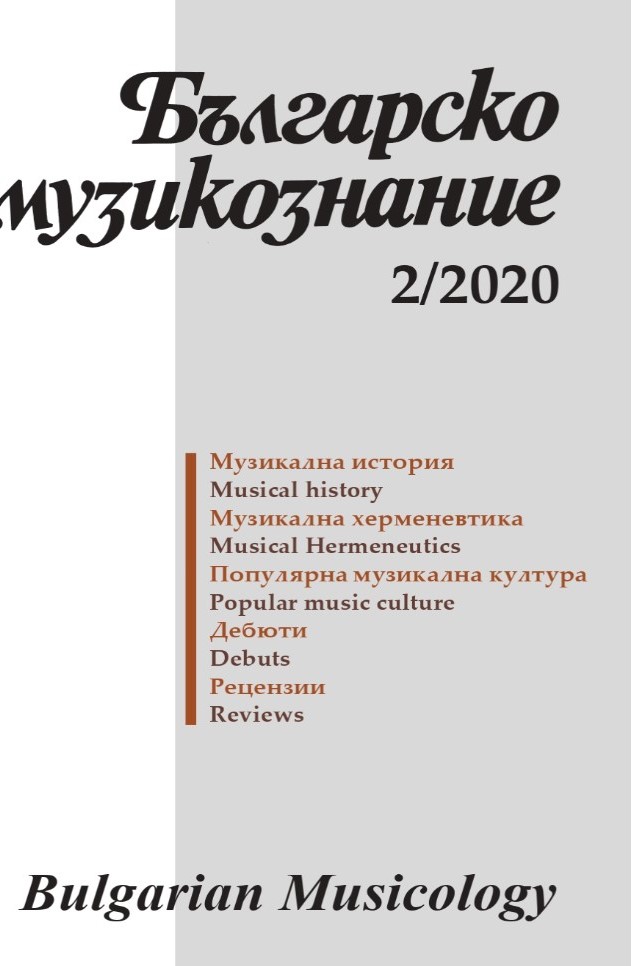Към основите на музикалната херменевтика
Towards the Foundations of Musical Hermeneutics
Author(s): Neva KrystevaSubject(s): Fine Arts / Performing Arts, Music, History of Art
Published by: Институт за изследване на изкуствата, Българска академия на науките
Summary/Abstract: Hans-Georg Gadamer defines the hermeneutical problem as “universal” in the field of modern philosophical hermeneutics, meaning not only the problem of language, but also that it “encompasses all of the Greek-speaking religious realm as art-religion as a way to reach the Divine in the flexible response of Man” (“die ganze griechisch-heidnische religiöse Welt mit umfaßt, als die Kunst-Religion, als die Weise, das Göttliche zu erfahren in der bildnerischen Antwort des Menschen”). A musician seeks not only to find the words towards another musician (the pedagogical problem) but also towards music itself, because approaching it is something more than a translation from one language into another. It encompasses the person as a whole, i.e. the emotions, mind, and the ability to foresee, to be active or contemplate his or her whole life. By mentioning the figure of “the theologian” Gadamer reminds that philosophical hermeneutics is an echo from biblical hermeneutics with roots so deep that they reach the interpretation of the holy or divinely inspired texts of humanity in general. Yet, this is pertinent to music or the musically sacred word. An example of how Antiquity foreshadows the long centuries of European music and cultural development (in this case the principle of cantus-firmus) is an excerpt of Plato’s Laws (657a, b): “To be established and made into laws those melodies which by nature represent the right way. This, however, can be the work of God or a Divine human; therefore, it is insisted that the melodies preserved for so long are the work of Isis.” At the basis of West European development of polyphony lies a sacred melody, namely the Gregorian chant chosen for that purpose [cantus pruis factus], and it is the uniting principle that holds together the whole polyphonic structure [cantus firmus]. This study briefly follows the connections of musical hermeneutics with biblical and philosophical hermeneutics by focusing on two of its founders – Hermann Kretzschmar (1848 – 1924) and Arnold Schering (1877 – 1941).
Journal: Българско музикознание
- Issue Year: 2020
- Issue No: 2
- Page Range: 44-54
- Page Count: 11
- Language: English, Bulgarian
- Content File-PDF

